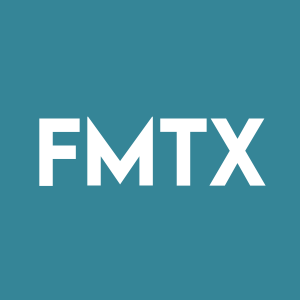Forma Therapeutics Announces Positive FT-4202 600 mg Multiple Ascending Dose Cohort Data Supporting the Doses Being Evaluated in Phase 2/3 Registrational Trial, Called the Hibiscus Study
Forma Therapeutics Holdings, Inc. (Nasdaq: FMTX) announced new data from its Phase 1 trial of FT-4202, a selective pyruvate kinase-R activator for sickle cell disease (SCD). The trial demonstrated a favorable safety profile and significant efficacy, with 71% of patients achieving a hemoglobin increase of at least 1 g/dL after 14 days of treatment. Notably, activation of PKR improved RBC survival and reduced hemolysis indicators. Further exploration is planned in a Phase 2/3 trial at an upper dosing range of 400 mg, following promising results in both 300 mg and 600 mg cohorts.
- 71% of FT-4202 patients achieved ≥1 g/dL hemoglobin increase.
- Favorable safety and tolerability profile observed at 600 mg dose.
- Potential for additional benefits with dosing beyond 14 days confirmed.
- None.
Forma Therapeutics Holdings, Inc. (Nasdaq: FMTX), a clinical-stage biopharmaceutical company focused on rare hematologic diseases and cancers, today announced new data from its ongoing randomized, placebo-controlled, multi-center Phase 1 trial of FT-4202 in patients with sickle cell disease (SCD) that further support the development of this novel investigational agent, a selective red blood cell (RBC) pyruvate kinase-R (PKR) activator, as a potential disease-modifying therapy. Data previously presented at the 2020 American Society of Hematology (ASH) Annual Meeting were based on the first cohort of patients in the Phase 1 trial dosed with 300 mg of FT-4202 or placebo once daily for 14 days and a 7-day follow up period. The new findings include an analysis of the blinded data from the second cohort of patients randomly assigned to receive 600 mg of FT-4202 or placebo once daily for 14 days and a 7-day follow up period.
“We are excited to see the favorable safety and tolerability profile of FT-4202 at a 600 mg dose, coupled with the overlap of pharmacodynamic activity and biologic effects across the 300 and 600 mg doses, supporting the evaluation of safety and efficacy at an upper range of 400 mg in our Phase 2/3 trial,” said Patrick Kelly, M.D., chief medical officer of Forma. “These results after only 14 days of treatment support the potential of FT-4202 to treat the underlying pathophysiology of the disease by increasing hemoglobin and reducing hemolysis, which may reduce the number and severity of vaso-occlusive crises SCD patients may experience annually.”
Aggregate findings from the placebo-controlled cohorts of the Phase 1 trial demonstrated 10 of 14 patients (
The data also showed activation of PKR by FT-4202 increased sickle RBC survival and reduced intravascular hemolysis in patients with SCD based on a reduction in reticulocytes, bilirubin and LDH levels.
Change in hematologic and hemolytic parameters at end of 14-day treatment as compared to baseline in FT-4202-treated patients (median change) |
||||
Dose Cohort |
Hb ≥ 1 g/dL |
Reticulocytes ↓ |
LDH ↓ |
Bilirubin ↓ |
300 mg |
6/7 (1.2 g/dL) |
7/7 (- |
6/7 (- |
7/7 (- |
600 mg |
4/7 (1.0 g/dL) |
|||
FAQ
What are the latest results from Forma Therapeutics' FT-4202 Phase 1 trial?
What is FT-4202 and how does it work?
What are the next steps following the Phase 1 trial for FT-4202?
How did patients respond to FT-4202 during the trial?







